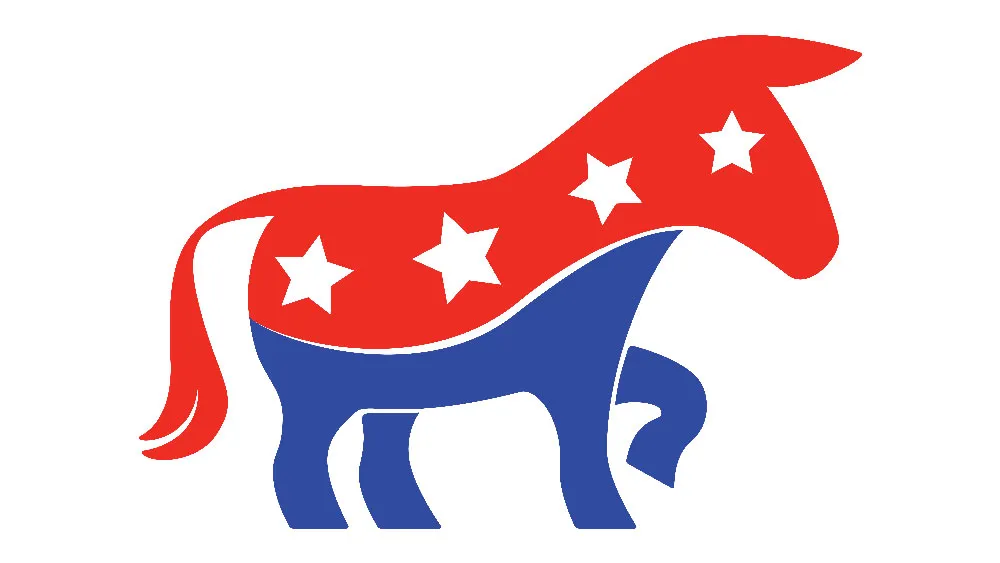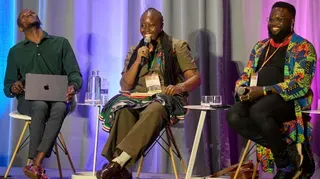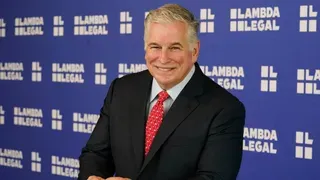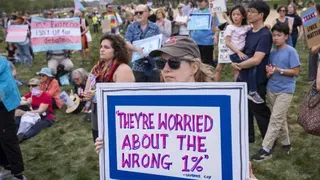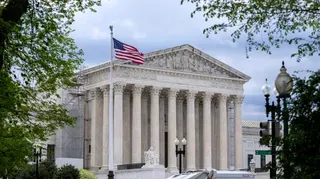December 10, 2010
EU-India trade deal could limit generics supply
Kilian Melloy READ TIME: 4 MIN.
AIDS patients in Africa are nervously awaiting the outcome of talks launched Friday between Europe and India on a new trade deal that could slash the world's supply of cheap generics.
Health activists warn a new agreement that raises protection for intellectual property rights for European drugs could have dire consequences for millions of people in developing countries who rely on drugs to treat diseases like AIDS, high blood pressure, diabetes and heart disease.
On Thursday, about 200 people marched through downtown Nairobi to protest clauses in the deal that could jeopardize their AIDS treatment. The negotiations are scheduled only for Friday but officials say it's unlikely any firm agreement will be concluded before next year.
"All of us are here today protesting the EU for threatening the drugs Kenyans need to stay alive," said Tom Onsongo, who represents a coalition of AIDS groups in Nairobi.
European officials insist the treaty does not limit India's right to produce generic medicines and dismissed such concerns as scare-mongering.
But leaked passages of the draft treaty, seen by The Associated Press, give health experts cause for concern. One is a clause known as "data exclusivity," which raises the bar for Indian companies trying to get their products to the market.
For years, generic producers have simply had to prove their medicines are equivalent to the original drug to be approved. Under new rules, they would have to conduct clinical trials, which cost millions of dollars, to duplicate the data produced by the original company.
Activists are also worried about attempts to extend patent protection to beyond 20 years and measures to seize generic medicines as they cross borders.
John Clancy, a spokesman for the EU trade commissioner Karel De Gucht, said it would be inappropriate to discuss specific measures in the treaty before it is finalized.
For European drug makers, the ability of Indian generic companies to make knockoffs without respecting patent rights gives them an unfair advantage.
"It is in the interest of European pharmaceuticals to have a more balanced approach to intellectual property," said Colin Mackay, a spokesman for the European Federation of Pharmaceutical Industries and Associations, which represents the continent's top 40 drug makers.
"For companies that have spent millions developing a new drug, it's only fair they should get a return on their investment."
Mackay added that there are adequate mechanisms in place when drugs are needed for a public health emergency, and European pharmaceuticals often grant local manufacturers licenses to make their medicines.
But some health officials say any increased protections for patented medicines could put many Indian pharmaceuticals out of business.
"What is at stake is all the newer medicines coming to market," said Tido von Schoen-Angerer, an executive director at Medecins Sans Frontieres. About 80 percent of the drugs MSF uses to treat AIDS patients come from India.
Several years ago, MSF and other organizations including the Clinton Foundation negotiated cheaper priced AIDS drugs for Africa, which they fear could now be threatened by new trade barriers.
Generic medicines from India cost from one-third to one-tenth the cost of the original brand-name drug. Von Schoen-Angerer said the cost of medicines could skyrocket if the supply of knockoffs from India is slashed and that donors would only be able to afford a fraction of needed drugs.
Last year, dozens of shipments of generic medicines from Asia were seized as they passed through European ports, ostensibly because the drugs infringed copyrights. The new trade deal, some health activists say, is an escalation of Europe's continuing fight against generic drugs.
Some economists said Europe has a legitimate claim to protect its business interests - but humanitarian issues complicate the picture.
"The EU is pursuing a trade agenda and trying to expand market opportunities for their industries," said Anne Roemer-Mahler, a global health expert at the London School of Hygiene and Tropical Medicine. "But problems can arise when economics shapes other policies like health."
The European Union is one of the world's biggest health aid donors and officials disputed their trade policies would undermine that.
"We have no interest in preventing assistance to people who need drugs," said Clancy, the EU spokesman. He added the proposed agreement includes a clause that protects India's right to produce and distribute generic drugs.
Clancy said the negotiations with India were much broader than the pharmaceutical industry and that opening up the massive Indian market would be hugely beneficial for numerous European businesses in sectors like banking, insurance and consumer goods.
In a letter the EU trade commissioner sent to MSF in May, the commissioner wrote that protecting intellectual property is crucial to developing new medicines and to allow European generic companies to compete with their Indian counterparts on a level playing field.
Still, some experts cautioned Indian generics companies might simply start catering to new customers, leaving patients in developing countries empty-handed.
"There's no profit in selling drugs to poor people," said Ken Shadlen, a reader in development studies at the London School of Economics. "If you make that more difficult, they might start selling something else," he said, citing generic Viagra as a more lucrative possibility.
Shadlen said if the Europe-India trade deal included the leaked clauses on data exclusivity and increased patent protection, the drug supply for poor people would be compromised. "India is the pharmacy of the developing world," he said. "If they aren't able to produce generics, there are no other countries that could step up to the plate right now."
The EU's attempt to bolster intellectual property rights might also be a response to India's past refusal to issue patents for recognized European drugs, including Gilead's AIDS drug tenofovir, or Viread.
"India hasn't always played fair, but two wrongs don't make a right," said Roger Bate, an economist at the conservative American Enterprise Institute. "There are several battles being fought here and unfortunately some patients in Africa may get stuck in the middle."
___
Associated Press Writer Jason Straziuso in Nairobi contributed to this report.
Kilian Melloy serves as EDGE Media Network's Associate Arts Editor and Staff Contributor. His professional memberships include the National Lesbian & Gay Journalists Association, the Boston Online Film Critics Association, The Gay and Lesbian Entertainment Critics Association, and the Boston Theater Critics Association's Elliot Norton Awards Committee.
